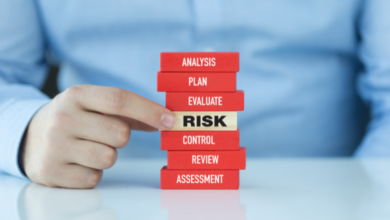Comprehensive Guide on Managing Gallbladder Pain and Gallstones During Pregnancy

Introduction
Gallbladder issues, including gallstones and related pain, can be a significant concern during pregnancy. The hormonal and physical changes that accompany pregnancy can affect the gallbladder, leading to discomfort or complications. This article provides a thorough exploration of how gallbladder pain and gallstones are managed during pregnancy, offering detailed information on symptoms, treatments, and preventive measures.
- Understanding Gallbladder Issues
1.1 What Are Gallstones?
- Formation: Gallstones are hard deposits that form in the gallbladder, a small organ located beneath the liver. They can vary in size and composition, with some being as small as a grain of sand and others as large as a golf ball.
- Types: There are two main types of gallstones: cholesterol gallstones, which are the most common, and pigment gallstones, which are less common and consist of bilirubin.
1.2 Symptoms of Gallbladder Issues
- Pain: Pain from gallstones can occur in the upper right abdomen, often radiating to the back or right shoulder. This pain is typically intermittent but can become severe.
- Other Symptoms: Nausea, vomiting, fever, chills, and jaundice (yellowing of the skin and eyes) can accompany gallbladder pain.
- Gallbladder Pain and Gallstones During Pregnancy
2.1 Causes and Contributing Factors
- Hormonal Changes: Pregnancy hormones, particularly progesterone, can affect the gallbladder by slowing down bile flow and increasing the risk of gallstone formation.
- Physical Changes: As the uterus expands, it can exert pressure on the gallbladder, contributing to discomfort or gallstone symptoms.
- Dietary Factors: Changes in diet during pregnancy, including increased fat intake or weight gain, can also influence gallbladder health.
2.2 Diagnosis
- Ultrasound: The primary method for diagnosing gallstones during pregnancy is abdominal ultrasound, which is safe and effective for visualizing the gallbladder without exposing the fetus to radiation.
- Other Imaging: In some cases, other imaging techniques like magnetic resonance imaging (MRI) may be used if ultrasound results are inconclusive.
- Treatment Options for Gallbladder Issues During Pregnancy
3.1 Non-Surgical Management
- Dietary Modifications: Adopting a low-fat diet can help manage gallbladder pain and prevent gallstone attacks. Avoiding high-fat and greasy foods reduces the likelihood of triggering symptoms.
- Hydration: Staying well-hydrated is important for maintaining bile flow and reducing the risk of gallstone formation.
- Medications: Pain relief medications, such as acetaminophen, can be used to manage discomfort. However, it’s essential to consult a healthcare provider before taking any medications, especially during pregnancy.
3.2 Surgical Interventions
- Indications for Surgery: In severe cases where gallbladder pain is persistent, recurrent, or associated with complications, surgical intervention may be necessary. The decision to proceed with surgery depends on the severity of symptoms and potential risks to the mother and fetus.
- Timing of Surgery: Ideally, surgery is postponed until after delivery unless there are urgent indications, such as severe pain, infection, or risk of complications like pancreatitis.
- Managing Complications
4.1 Acute Cholecystitis
- Definition: Acute cholecystitis is an inflammation of the gallbladder, often caused by a gallstone blocking the bile duct. It can lead to severe pain, fever, and infection.
- Treatment: Treatment typically involves antibiotics and pain management. In some cases, surgical removal of the gallbladder (cholecystectomy) may be necessary, often performed after delivery.
4.2 Pancreatitis
- Definition: Pancreatitis is an inflammation of the pancreas, which can occur if a gallstone blocks the pancreatic duct. It presents with severe abdominal pain, nausea, and vomiting.
- Management: Treatment usually involves hospitalization, intravenous fluids, pain management, and addressing the underlying cause. Surgery may be required if gallstones are the primary cause.
- Preventive Measures
5.1 Healthy Eating Habits
- Balanced Diet: A diet rich in fruits, vegetables, whole grains, and lean proteins supports overall gallbladder health. Avoiding excessive consumption of fatty, fried, and processed foods can reduce the risk of gallstone formation.
- Regular Meals: Eating smaller, more frequent meals can help maintain bile flow and prevent the gallbladder from becoming too full or stagnant.
5.2 Regular Check-Ups
- Monitoring: Regular prenatal check-ups allow healthcare providers to monitor gallbladder health and address any emerging issues promptly.
- Consulting Specialists: If gallbladder problems are suspected or diagnosed, consulting a specialist, such as a gastroenterologist or a surgeon, may provide additional insights and management options.
- Coping Strategies
6.1 Pain Management
- Non-Medical Approaches: Techniques such as relaxation exercises, warm compresses, and gentle abdominal massage may help alleviate discomfort.
- Medical Consultation: Always consult a healthcare provider before trying new pain management strategies to ensure they are safe and appropriate.
6.2 Emotional Support
- Counseling: Dealing with chronic pain and health concerns during pregnancy can be stressful. Seeking support from a counselor or joining a support group can provide emotional relief and practical advice.
- Conclusion
Gallbladder pain and gallstones can present challenges during pregnancy, but with careful management and appropriate treatment, most women can navigate these issues effectively. Non-surgical approaches, such as dietary modifications and hydration, are often the first line of treatment. In severe cases, surgical intervention may be necessary but is generally postponed until after delivery. Monitoring, preventive measures, and coping strategies can help manage symptoms and maintain overall well-being during pregnancy.
Brief
Gallbladder pain and gallstones during pregnancy require careful management to avoid complications. Non-surgical treatments, such as dietary changes and hydration, are often effective, while surgery is typically reserved for severe cases and usually postponed until after delivery. Regular prenatal check-ups and preventive measures can help manage and reduce the risk of gallbladder issues. Seeking medical advice and support is crucial for addressing symptoms and ensuring a healthy pregnancy.




